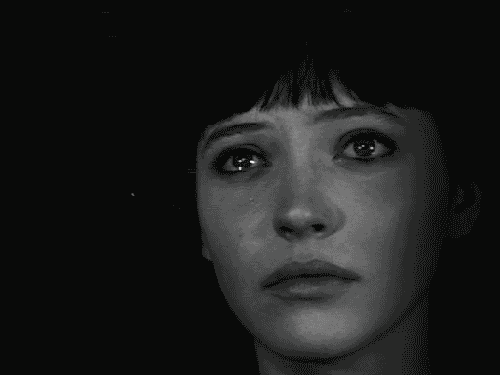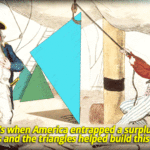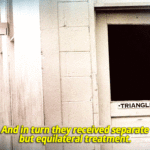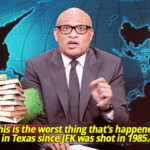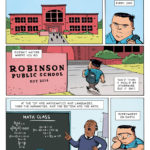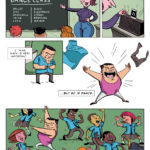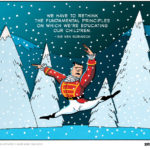Theater matters. Band matters. Dance matters. Art matters. Orchestra matters. Photography matters. Color Guard matters. Film matters. Poms matters. Choir matters. Creative Writing matters. THE ARTS MATTER.
SAY IT LOUDER FOR THOSE IN THE BACK
THE ARTS MATTER
They’d be able to hear you in the back of an auditorium.
yeah but they knocked down the auditorium to make room for more sports grounds
Those fuckers
Sexual identity isn’t easy to discuss in a profession scarred by conservative bureaucracy. Standardized testing, rigid goals and teacher evaluations have only exacerbated an already challenging job. And in a world plagued by stereotypes that stigmatize LGBT educators, it’s no wonder that even my close friends questioned my yearning to come out.
“What you do in the privacy of your home is no one’s business,” they’d say. “It’s important to separate your personal and professional lives.”
To a certain extent, they’re correct. While students don’t need every detail, by sharing ourselves as we really are, we forge impenetrable bonds with students. It’s not enough to simply know them; they must know us, too.
Twenty-one states – plus Washington, D.C. and Puerto Rico – have state-based employment nondiscrimination laws covering sexual orientation that apply to both private and public sector employers. That means 29 states still don’t, and many LGBT educators fear coming out. In an environment where you are entrusted with the health and guidance of children, the stakes feel even higher. We worry: Will I be fired? Will parents be angry? Or worst of all, will my students no longer respect me?
My third year of teaching built up my strength to tell the truth, and then, in 2013, as my home state of Illinois legalized same-sex marriage, fate gave me a push.
A colleague approached me about discussing the legislation in the classroom. I eagerly agreed. We arranged articles showing both viewpoints, composed a letter to parents and sent it off. Within hours, we’d received supportive emails, thanking us for bringing the topic into the curriculum.
The next morning, however, the principal summoned us to her office.
“This topic is inappropriate for kids,” she said, “and this is not the forum for changing the world, Paul.”
(via gaywrites)
“Particularly prone to serious procrastination problems are children who grew up with unusually high expectations placed on them…or else they exhibited exceptional talents early on, and thereafter “average” performances were met with concern and suspicion from parents and teachers.”
Holy SHIT
WELL THEN
Yep.
They actually tested me for a learning disability in high school because I was consistently failing math.
They discovered that I actually scored in the 80th percentile in that sort of learning.
Problem was, in every other subject, I was in the 99.8th percentile.
I had never learned how to study because I never needed to—and then, when something proved to be even the slightest bit challenging, my brain went
“LOL nope this is impossible abort”
Meanwhile, this entire time I’m scraping by in subjects like English. The assignments I did turn in, I’d score top marks—but I’d avoid turning in projects I didn’t think were “good” enough.
Essentially, my brain had two settings: “100%” or “0%”.
This sort of Baby Genius shit makes kids and adolescents neurotic and self-destructive.
Voyager is so happy, because it’s the bravest satellite of all. It has gone the furthest. And it’s not lonely, because it’s talking to us. It phones home. And it tells us all about the wonderful things that it’s seeing. …There’s a whole universe to explore, and it’s just leaving our Solar System right now. It’s very brave and very lucky to be doing what it’s doing, so it’s not going to get lost. It’s traveled further than anything we’ve ever built has traveled before. It’s actually showing us the way. …
It might have been safer for it to just stay home, and stay inside a building, but then it would have been sad forever, because it never would have done its purpose. It never would have discovered things. It’s all a wonderful story of great discovery and success, and it couldn’t have happened if Voyager hadn’t been brave…
It’s not really the fact that everything always has a start and an end, it’s what happens in the middle that counts. What do you while you’re alive? What do you do while you’re laughing? And I think we’re doing exactly what makes Voyager joyful and as happy as it could be.
Think about the fact that you’re a little bit like Voyager. In that you’re going to go see the world, and you’re going to call your mom on the phone and tell her about the wonderful things that you see. … You wouldn’t want to spend your whole life hiding under your bed and never seeing anything in your whole life, you want to be able to do what makes you happy and joyful and learn about things to discover. You might be the person that discovers something really important for everybody else on the world, but you can never discover that if you just hide and only do things that are safe. So think about yourself a little bit like Voyager. What makes you laugh? It’s not just staying, hiding underneath your bed safely at home.
Cmdr. Chris Hadfield, reassuring a five-year-old who was worried about the Voyager satellite (source)
